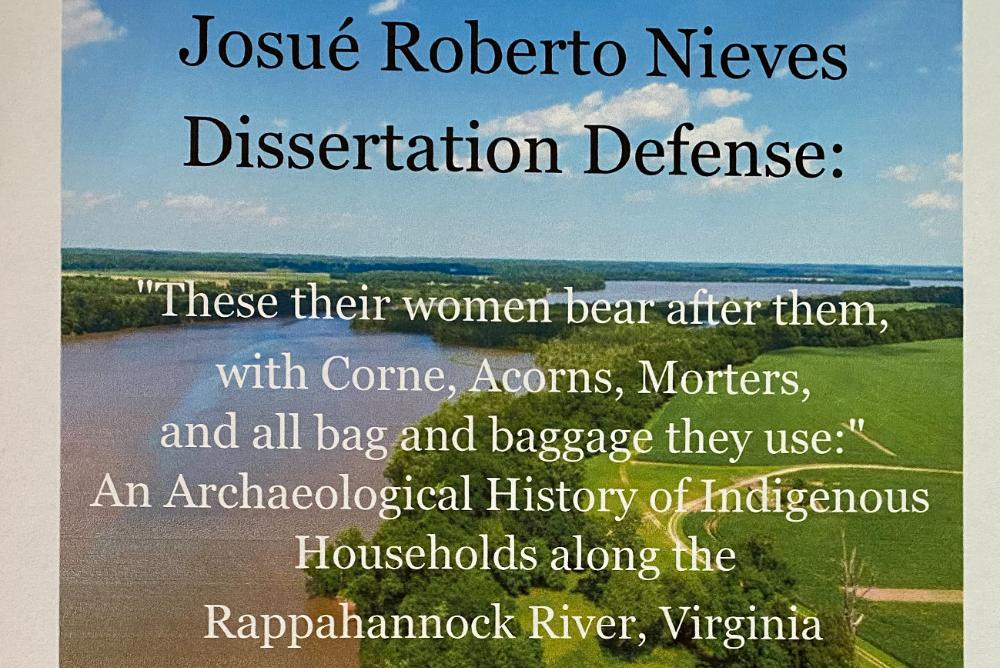W&M Featured Events
[PAST EVENT] Anthropology Dissertation Defense: Josué Nieves, Archaeological History of Indigenous Households
Location
Zoom
From Josué's precis: "Reconstruction of Indigenous history along the Rappahannock River poses a unique challenge for western-trained scholars since direct historical and archaeological evidence of such information is rare. Compounding this dilemma is the fact that extraordinarily little archaeological research pertaining to Indigenous Rappahannock River tribal communities exists among western information repositories (i.e., academic publications and private/public cultural resource reporting). To the immediate south, the Powhatan chiefdom and Chickahominy Tribe of the York and James River Valleys have garnered most of Virginia's ethnohistorical and archaeological attention (e.g., Axtell 1995; Gleach 1997; Fausz 1977; Rountree 1989, 1993, 2005; Rountree and Turner III 2002; Williamson 2008). To the north, the Patawomeck, Anacostans, and Piscataway tribes residing along the Potomac River have attracted more recent academic interest than their southerly neighbors (King and Flick 2019; King et al. 2016; Potter 1993). Although no comprehensive answer explaining these circumstances currently exists, the lack of regional-scale survey data from the Rappahannock River Valley and the fragmentary state of Virginia's public and private cultural resources archives are likely some of the contributing factors (see Library of Virginia 2018; Strickland et al. 2016:14).
However, I believe that there exists an additional explanation for the western knowledge gap surrounding Indigenous Rappahannock River 17th century history; one that western-trained professionals working in Virginia more broadly commonly overlook. The culprit: overwhelming reliance on what archaeologists operating in other areas of the world label as “block time” (c.f. Crellin 2020; Harris and Cipolla 2017; Lucas 2005; Robb 2007; Robb and Harris 2013). According to archaeologist Rachel Crellin (2020:6-7), “block time” represents the abstract way of thinking that professionals utilize when they sub-divide human history into arbitrary groups, such as eras or periods, and inappropriately believe such contemporary constructs naturally exist in the past. “Block time” understandings of the past often perceive human history as progressive and unilineal; for example, in the case of Virginia, the Paleoindian period precedes the Archaic period, which in turn precedes the Woodland period. Survivalist human behaviors (i.e., what individuals do to survive day-to-day) and technology define the temporal boundaries of one era versus another; change rests at the transition of two periods, suggesting it is always extreme and akin to a social revolution (see Crellin 2020:12)."
Please email Joni Carlson [[jdcarlson]] for Zoom link.
Contact
[[jdcarlson]]
